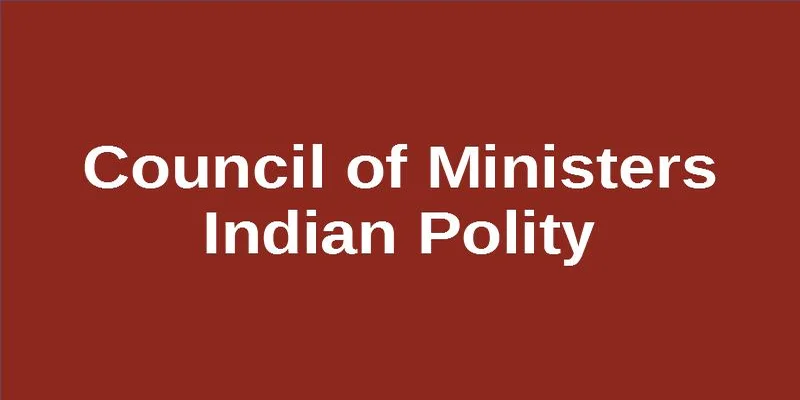Council of Minister
The Council of Ministers is equivalent to the term cabinet and is a part of the executive branch of government. The Council of Ministers includes the heads of various departments or ministries, such as finance, defense, foreign affairs, health, education, and more.
Composition:
- The Prime Minister: acts as the head of the Council of Ministers.
- Cabinet Ministers, Ministers of State (Independent Charge), and Ministers of State.
- Deputy Minister
- Cabinet Ministers
- Ministers of State (Independent Charge).
- Ministers of State
Appointment:
- The President of India appoints the Prime Minister, who is usually the leader of the majority party in the Lok Sabha.
- On the Prime Minister’s advice, the President appoints other ministers of the Council.
Roles and Functions of the Council of Ministers in India
The Council of Ministers in India plays a crucial role in the governance and administration of the country.
- Policy Formulation
- Implementation of the Policies
- Introducing bills, participating in debates, and voting in the Parliament.
- Responsible for the administration of various departments and ministries.
- The Finance Minister presents the annual Union Budget in Parliament.
- Crisis Management
- External Affairs Minister represents India in international matters.
- The Defense Minister is responsible for the armed forces.
- Home Minister oversees internal security, law, and intelligence services.
- Advising the President
Types of Ministries:
- Ministries can be broadly categorized into economic, social, and infrastructure ministries.
- Economic ministries handle issues related to finance, commerce, and industry.
- Social ministries deal with areas like education, health, and welfare.
- Infrastructure ministries oversee sectors such as transportation, energy, and telecommunications.
Facts of Council of Ministers in India
- A person can be a minister for a maximum of 6 months without being a member of parliament.
- The 91st Amendment to the Constitution in 2003 declared that the cabinet could not have more than 15 percent of the members of the legislature.
- India’s first general election was held in 1951-52.
- The Fifth Lok Sabha of India lasted for more than 5 years – 19/3/1971 to 18/1/1977.
Impeachment of ministers from the council
The ministers can be removed for the following reasons –
- If he/she dies
- if he or she resigns himself
- if he or she violates the constitution, (the President dismisses him).
| Articles | Description |
|---|---|
| Article 75(1) | The Ministers shall hold office at the pleasure of the President. |
| Article 75(2) | The Ministers shall hold office during the pleasure of the President. |
| Article 75(3) | The Council of Ministers shall be collectively responsible to the House of the People. |
FAQs on Council of Minister
These sample questions and answers are designed to help you understand and prepare for UPSC-style questions on the Council of Ministers in India.
What is the primary role of the Council of Ministers in India?
[C] Formulating and implementing government policies
Who can remove the Council of Ministers?
[B] The Lok Sabha
What is the main role of the Council of Ministers?
[C] Introducing and passing bills
